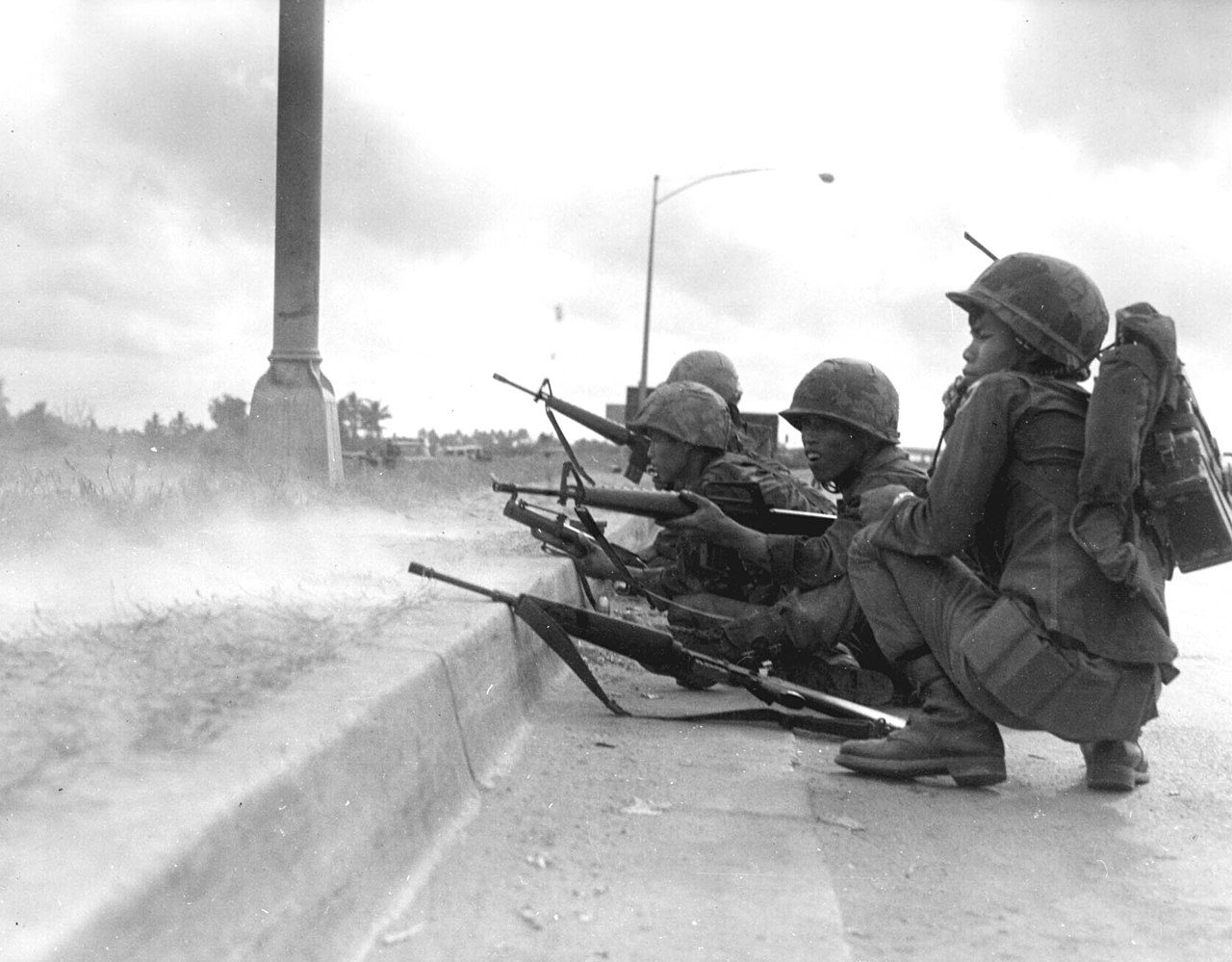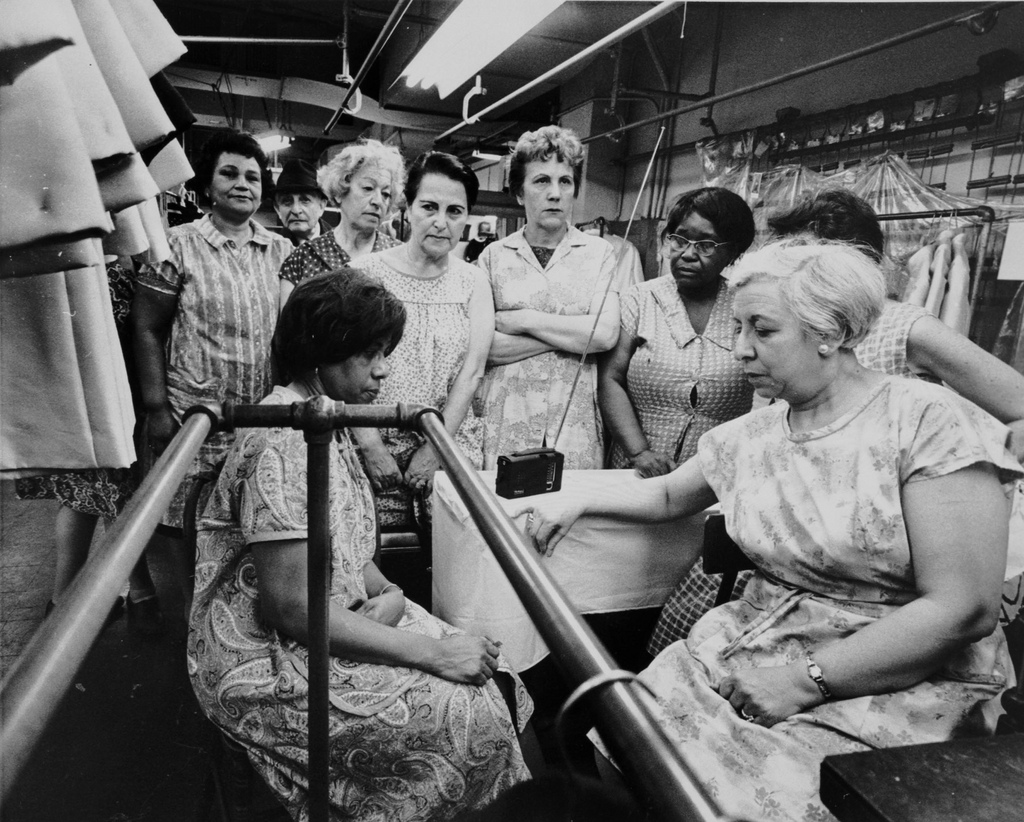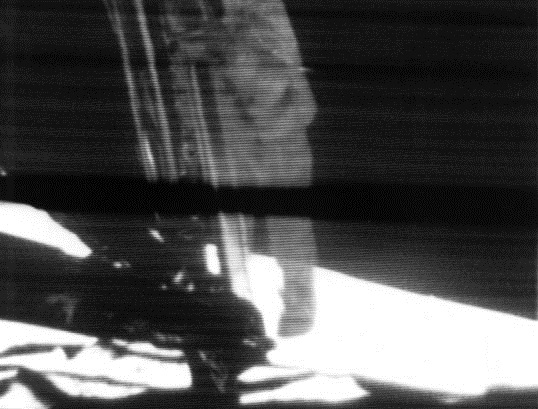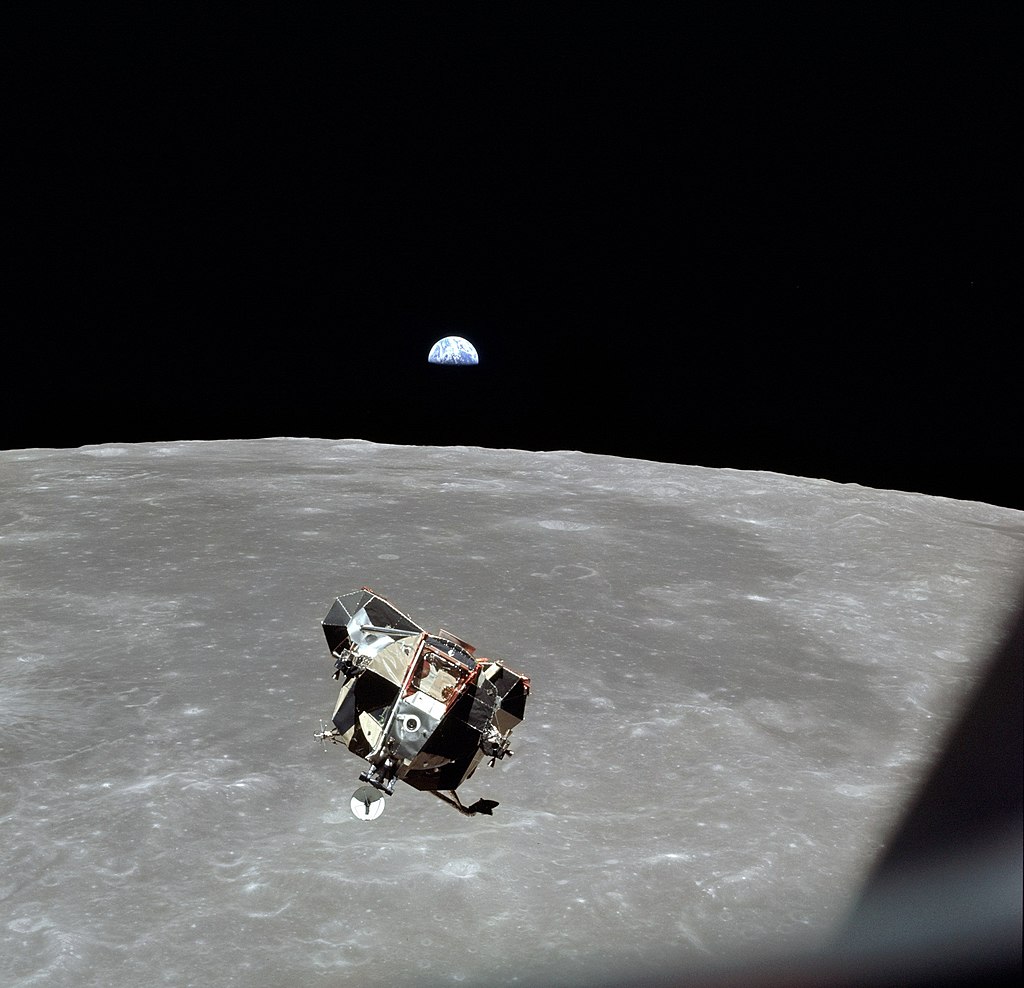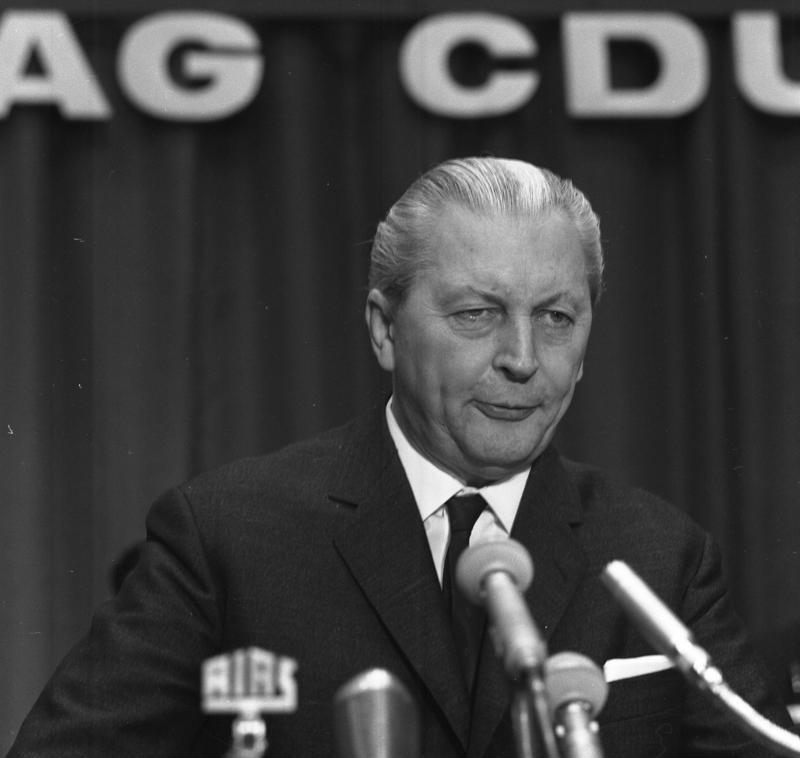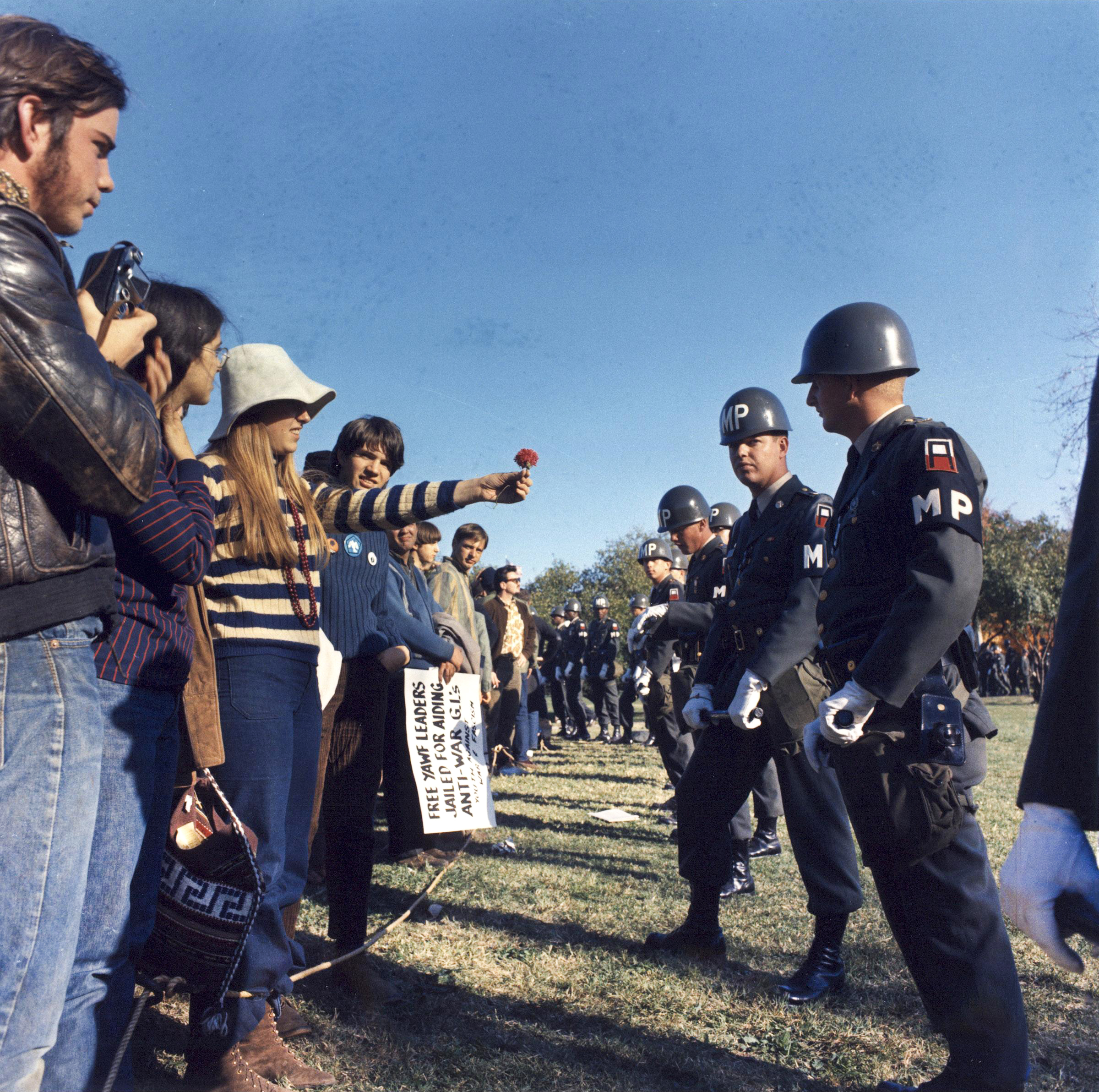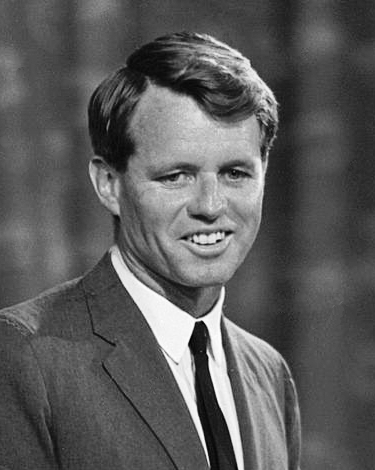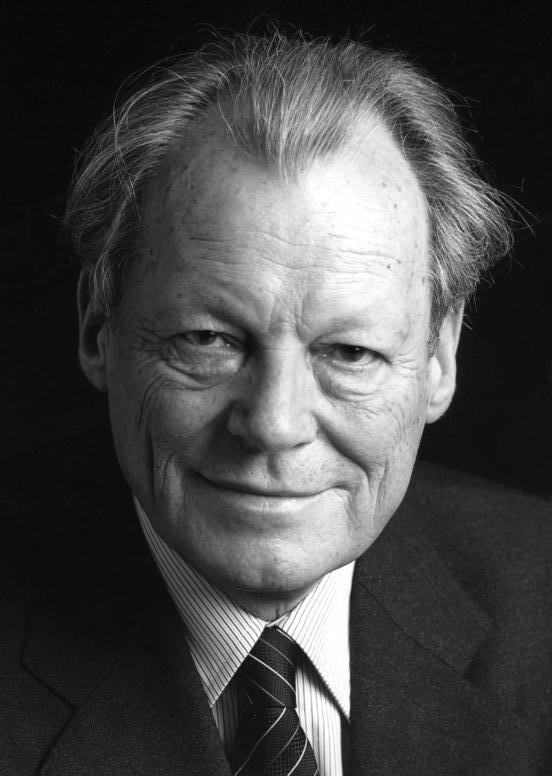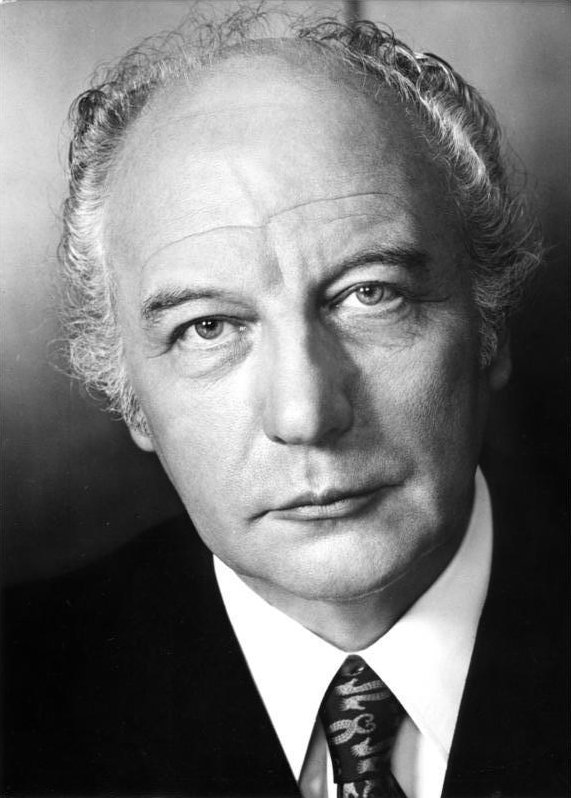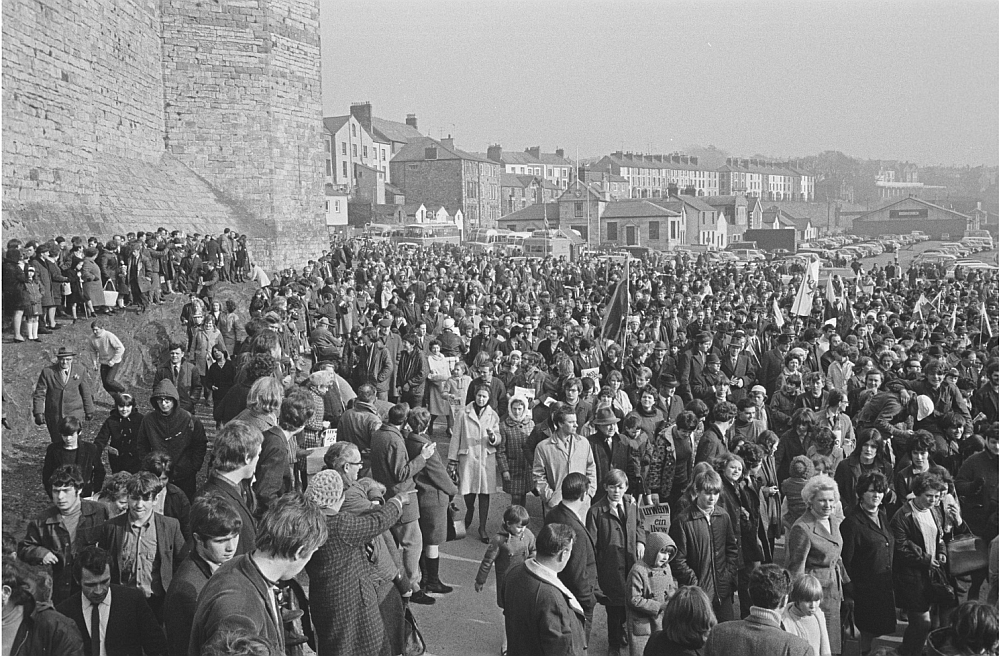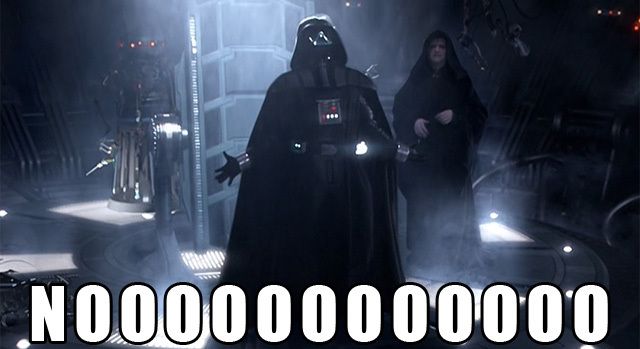Chapter 424: Give Peace a Chance
The Chaw Thai increasingly targeted Roman military bases throughout Siam, provoking a disproportionate military response. Following an attack on a Marine barracks in Chanthaburi, the General Staff executed Operation Rolling Thunder, a massive bombing campaign of major Thai cities designed to destroy Thailand's industry and infrastructure and boost Siamese morale. Over the next three years, Rolling Thunder would blanket Thailand with millions of missiles and bombs. Other aerial campaigns targeted Chaw Thai strongholds and the Panomyong Trail through Laos and Cambodia. Leading military commanders in Siam vowed to "bomb [Thailand] back into the Stone Age."
Meanwhile, more and more Roman troops were deployed to Siam in 1965 and 1966, with public opinion initially supporting the deployment. What was originally a deployment of 3500 soldiers in March 1965 became 200,000 in December, following a string of failures highlighting the AKSM's incompetence. Ludwig Erhard approved a plan in which the Reich took charge of defeating the Chaw Thai and Seri Thai, not the AKSM. In official press releases, he emphasized continuity. The Reich's revised military policy in Siam revolved around "Zählung der Toten," or body count. Given the jungle and mountain terrain of Thailand, victory could not be measured in the amount of territory seized in a given time period. Instead, it would be measured in how many of the enemy was killed, with the intention of bleeding the Seri Thai dry. On the ground, Roman troops would kill as many of the Chaw Thai as possible, while in the air Roman jets and bombers would level Thai cities and eliminate the infrastructure and industry necessary for the Seri Thai to continue its war.
As the casualties increased, the General Staff called up the draft. Although this was not a general mobilization, it was still a controversial move, because it had last been called up in World War II. Although public support for the war was initially quite high, it soon dropped. In May 1964, twelve men in Frankfurt publicly burned their draft cards. In December 1964, six hundred citizens participated in an anti-war demonstration in Tel Aviv. In 1965, professors at Imperial University Milan organized a teach-in protest which was copied at 35 other universities throughout the Reich. A few days later, an old woman set herself on fire in protest. In April, 25,000 protesters joined an antiwar march in front of the Great Palace, Bukoleon Palace, and the Pentagon. At Imperial University Tel Aviv, students burned draft cards and an effigy of Ludwig Erhard. By mid-October, the antiwar movement had expanded into a global phenomenon as antiwar protests drawing over 100,000 were held simultaneously in at least 80 cities throughout the Reich and its allies.
Opposition to the Siam War emerged in part due to a developing student movement. Inspired by the Civil Rights Movement, students became increasingly politically active. Imperial University Tel Aviv, in the heart of the liberal Middle East, in particular was a center for student movements, seeing thousands of students gathering every day to protest against the war and for civil rights.
In addition to participating in the antiwar movement, students also demonstrated as part of the Civil Rights Movement. Protests and acts of civil disobedience took place in cities with large minority (non-German and non-Greek) populations. In Italia, citizens boycotted bus systems, which forced minorities to sit at the back. Sit-ins and marches for social justice were held in other cities.
Rosa "Luxemburg" Parker (no relation to the actual Rosa Luxemburg) defying bus segregation, 1955 (next to Abraham Green)
Erhard worked hard to pass landmark civil rights legislation, despite being distracted by Siam. The Civil Rights Act of 1964, enshrined in the Augustinian Code, explicitly banned any form of racial, religious, or gender discrimination and took steps to reform the Bureau of Qualifications' examiner selection process to include more minorities. Despite this, many saw the Civil Rights Act as not enough to address the problems facing minorities and end centuries of discrimination. From 1964 to the end of the decade, a wave of inner city riots put German and Greek communities at odds with the minority communities. Abraham Green, who had won the 1964 Nobel Peace Prize, came under increasing scrutiny from his supporters to abandon non-violence and civil disobedience.
As if the chancellor wasn't already busy enough with Siam and civil rights, climate scientists published a landmark paper warning about a new threat: global warming.
By the 1960s, aerosol pollution ("smog") had become a serious local problem in many cities, and some scientists began to consider whether the cooling effect of particulate pollution could affect global temperatures. Scientists were unsure whether the cooling effect of particulate pollution or warming effect of greenhouse gas emissions would predominate, but regardless, began to suspect that human emissions could be disruptive to climate in the 21st century if not sooner. In his 1968 book The Population Bomb, Paul R. Ehrlich wrote, "the greenhouse effect is being enhanced now by the greatly increased level of carbon dioxide... [this] is being countered by low-level clouds generated by contrails, dust, and other contaminants... At the moment we cannot predict what the overall climatic results will be of our using the atmosphere as a garbage dump."
In 1965, the landmark report, "Restoring the Quality of Our Environment" by Erhard’s Science Advisory Committee warned of the harmful effects of fossil fuel emissions:
The part that remains in the atmosphere may have a significant effect on climate; carbon dioxide is nearly transparent to visible light, but it is a strong absorber and back radiator of infrared radiation, particularly in the wave lengths from 12 to 18 microns; consequently, an increase of atmospheric carbon dioxide could act, much like the glass in a greenhouse, to raise the temperature of the lower air.
In 1966, the Reich became the first candidate to deal with climate change on an international level. It was planned then to establish a hub of research and initiatives of the organization in the civil area, dealing with environmental topics as Acid Rain and the Greenhouse effect. Erhard's suggestion was not very successful with the rest of his cabinet, although Willy Brandt and the SPR did call for action to be taken. But the topics and the preparation work done on the Roman proposal gained international momentum, (see e.g. the Stockholm United Nations Conference on the Human Environment in 1970) as the SPR-CMU coalition started to apply them on the civil sphere instead.
Die Zeiten, of course, ignored all of these developments on Siam and civil rights, but strangely they remembered to run an article, albeit a very short one, on climate change.
The Siam War, despite its name, was not limited to just Siam. The Chaw Thai and Seri Thai continued operations throughout Malaya. Although the Malayan Emergency was long over and most of the rebels had surrendered, a few fought on in the jungle, and with Chaw Thai support they launched a renewed insurgency in April 1966. In neighboring Singapura, the unpopular one-party dictatorship of Lee Kuan Yew dealt with its own insurgency as hundreds of thousands of Singapuris took to the streets and the city's police and military forces sided with them. Lee Kuan Yes formally asked the UN for peacekeeping troops, fearing a descent into chaos. The UN obliged the Reich to send troops to restore order to Singapura, and Erhard responded, sending the aging Hugo Doukas and three legions to the city.
(It shouldn't say "Republican Guard")
Although the Romans were just there for peacekeeping, more radical factions within the rebels attacked them, provoking a Roman response. In the fighting, sixty thousand rebels and civilians were killed and half the city was leveled by repeated air strikes and artillery bombardment.
The heavy losses spurred the rebel leadership to enter into negotiations with the Singapuri government, and a ceasefire was signed on 25 July.
Lee Kuan Yew was spared a trial and forced to retire, with the Diet of Singapura assuming executive authority and the Malayan monarchy installed as a ceremonial head of state.
Throughout the spring and summer, more and more antiwar demonstrations were held across the Reich and Siam. Thousands of Romans marched to protest "Erhard's war," while in Siam twenty thousand Buddhists demonstrated against the regency council's policies and lack of meritocratic examinations. That May, tens of thousands of antiwar demonstrators picketed Bukoleon Palace, Blachernae Palace, and the Great Palace before rallying in front of Friedrich the Great's statue in Augustaeon Square.
In September of 1966, while Erhard was forced to deal with civil rights demonstrations and antiwar protests, the Kaiser visited Britannia to mark nine hundred years since the fateful Battle of Stamford Bridge, where the Pagan Resurgence began and led to the restoration of the Reich forty years later. Representatives from major pagan and non-Abrahamic countries--Tsarist Russia, Denmark, Kanata, Persia, Finland, Turkestan, Persia, Afghanistan, Mali, Abyssinia, Cuba, and even Mexico--arrived at the location of the battle, where the descendants of Harald Hardrada and Harold Godwinson gave speeches and shook hands with each other, hoping to put to rest centuries of hatred and work together.

In October, after significant protests from the Tawantinsuyuan government, the United Nations revoked Nusantara's "permanent" seat on the Security Council, citing its anti-meritocratic handling of dissent. Instead of granting the vacated seat to Tawantinsuyu, as expected, the UN granted it to the Shogunate instead. Tawantinsuyu and the equalist bloc moved to veto this nomination, but the Reich and China and their allies overrode the veto.

When the 1967 Reichsrat convened, the conservatives continued their steady decline as more of their members defected to the socialists, liberals, and progressives. With another loss of two points, the conservatives now controlled around 12% of the Reichsrat, much less than the populists and traditionalists and barely more than the progressive independents. If it weren't for the socialists, populists, and traditionalists, the liberals would have retaken the Reichsrat. Although the CMU/CSU remained in nominal control of both houses, the SPR increasingly called the shots, leading many newspapers to refer to a "shadow SPR government."

The Kingdom of Nusantara had been undergoing a period of unrest for the last few years, spurred on by the actions of equalists, Seri Thai saboteurs, Chinese and Indian settlers, anti-government tribal militias, and republican factions. Sukarno's response to this was to ban political organizations and implement greater centralization as part of his left-leaning "guided meritocracy" reforms. This only increased unrest, especially among the military, which feared that Sukarno was a secret equalist. The loss of Nusantara's Security Council seat was the final straw. Major General Suharto, who was the leader of this movement within the military, reached out to both the republican factions and to the Republic of Mexico, which had taken charge of the international republican movement after the deposing of Guacra Paullu. Both factions agreed to support Suharto's movement.
Suharto declaring himself President of Indonesia
On 3 January 1967, as the Nusantaran Diet convened in Yogyakarta, six of the military's most senior officers were killed in an action (generally labelled an "attempted coup") by the so-called 30 September Movement, a group from within the armed forces. Within a few hours, Major General Suharto mobilised forces under his command and took control of both Jakarta and Yogyakarta, declaring martial law and dissolving the Diet. All members of the Diet were placed under house arrest "for their own protection." Anti-equalists, initially following the army's lead, went on a violent purge of equalists, Chinese, and Indians throughout the country, killing an estimated half million people and destroying the PEN (Equalist Party of Nusantara), which was officially blamed for the crisis. The politically weakened Sukarno was forced to transfer key political and military powers to General Suharto, who had become head of the armed forces. A week later, the Nusantaran Diet, newly refilled with military officers loyal to Suharto, passed a resolution abolishing the Nusantaran monarchy and declaring the Republic of Indonesia, with General Suharto named president. Sukarno lived under virtual house arrest until his death in 1970. In contrast to the stormy nationalism, revolutionary rhetoric, and economic failure that characterized the early 1960s under the left-leaning Sukarno, Suharto's "New Order" stabilised the economy but continued the policies of Pancasila ("Unity in Diversity"). Suharto also took a hard line against the Reich, India, and China, asserting Indonesia's sovereignty and withdrawing its troops from mainland Southeast Asia. He also took steps to align with Mexico.

On 14 January, about thirty thousand people showed up for the "Human Be-In" in Tel Aviv in response to a law banning the use of LSD. Poets, gurus, comedians, and rock bands showed up to participate, while some brought massive amounts of LSD. The national media was stunned by the event, and it was initially unable to comprehend how many people attended or what they were doing. Soon similar gatherings had popped up across the Reich, spreading a message of universal peace and love. The Human Be-In united different factions of the Tel Aviv-based counterculture, molding it into a loosely unified national movement, a truly Roman counterculture which questioned authority with regard to civil rights, women's rights, and the Siam War. It would also set the stage for the Summer of Love that year.
Two days after May Day, Erhard received news from the mayor of Cologne, who announced that former chancellor Konrad Adenauer had passed away at his home, surrounded by his family. The old statesman's last words were reportedly "There's nothing to weep about." He was 91. The Reich's first postwar chancellor, the man who had worked with Kaiser Otto to lead the Reich out of the chaos of the war, was gone.
Adenauer's funeral
Adenauer's funeral took place in Cologne Cathedral and was attended by several world leaders, among them Kaiser Otto, Kaiserin Victoria Louise, Princess Elisabeth Alexandra, the Xuantong Emperor, Crown Prince Mingren, Chiang Kai-Shek, Empress Sita, Tsaritsa Sbyslava, King Haakon of Denmark, King Magnus I of Kanata, King Toghoril of Finland, and even former Soviet leader Vyacheslav Molotov (who wanted to honor an "honorable and worthy rival"). War heroes Hugo Doukas and Karl von Gallia also attended, as did thousands of regular civilians and many of Adenauer's former trade union associates. After the Requiem Mass and service, his remains were taken upstream to Rhöndorf, where Adenauer grew up, on the Rhine aboard SMS Kondor, with two more Jaguar class fast attack craft of the Kaiserliche Marine, Seeadler and Sperber as escorts, "past the thousands who stood in silence on both banks of the river." He was interred at the Waldfriedhof ("Forest Cemetery") at Rhöndorf. When, later that year, Romans were asked what they admired most about Adenauer, the majority responded that he had brought home the last Angeloi prisoners of war from the CSSR, which had become known as the "Return of the 10,000," and lifted the Reich out of the postwar economic crisis. In 2003, he would be voted the second "greatest modern Roman," with Kaiser Otto being first and Ludendorff, Hindenburg, and Hugo Doukas as third, fourth, and fifth, respectively (and Markos Angelos, the other Angeloi, and all pre-Restoration leaders being excluded). He may have made a lot of mistakes when in power, but nobody was perfect. The Reich would never see another leader like him in a long time.

Over in India, Empress Sita returned home to find formerly Chinese-occupied Bengal in flames. The Equalist Party of India, with covert Soviet support, had initiated an uprising against government authorities in the state, primarily centered around the village of Naxalbari (giving the insurgents the nickname "Naxalites"). The Naxalites vowed to take up armed struggle to redistribute land to the working class and attacked landowners and sharecroppers near Naxalbari. When the police arrived to arrest the Naxalites, the Naxalites ambushed and killed them, encoraging many local tribes to join the movement and start attacking local landlords. The movement quickly spread, despite Empress Sita tasking her new chancellor, Indira Nehru (daughter of Jawaharlal Nehru) to implement left-wing reforms to appease them.

Tawantinsuyu did not take the UN's decision to give a Security Council seat to the Shogunate lightly. The Tawantinsuyuan representative lodged a formal complaint, accusing the UN of being a Roman puppet and threatening to withdraw Tawantinsuyu from the UN. After a year of debating, the UN booted the Shogunate from the Security Council, citing "yakuza proliferation," and granted the seat to Tawantinsuyu. This only served to inflame anti-UN tensions even more, especially since Tawantinsuyu was in the middle of an election campaign. The leading candidate was the populist Sabana Anuhi, whose Andean National League was fiercely nationalist and anti-equalist. The ANL was also rumored to be a republican party that had ties to Mexico's Aztlan Party, though there was no proof. Sapa Inca Pumi Sopa could not ban this dangerous party without provoking a revolution, so he desperately asked other right-wing and even left-wing parties to rig the vote, join forces with each other, or otherwise prevent the ANL from winning.

The year 1967 was a special year for the Soviet Commune. It marked fifty years since the October (really November) Revolution which overthrew the weak republic (and Chinese client state) established after the fall of the corrupt Rurikid autocrats. Every year the Presidium held a grand military parade in the capital to mark the occasion. But for the 1967 parade, the Presidium planned to put on the event of the century, overshadowing whatever could pass for "triumphs" in reactionary Constantinople.
.jpg)
All major Soviet political and military leaders, including Brezhnev and Zhukov, took their seats at Lenin's Mausoleum as hundreds of the Soviet Army's divisions marched past them, their proud soldiers marching in unison as one. Brezhnev gave a speech in his usual manner, extolling the sacrifices the people of Russia did to free themselves from oppressive tyranny and become a superpower capable of challenging the reactionaries' hegemony. It had been fifty years of war and peace, but they had been a meaningful half century. Much progress had been made since Lenin arrived back in Russia and called for the proletariat to break their chains. Much progress had been made since the destruction of the Angeloi and the liberation of the East from Roman tyranny. But there was still much to be done. The reactionaries and fascists still existed. They had to be destroyed, and their slaves freed. It was Lenin's and Trotsky's dream of a world without kings and gods, where men and women worked together as equals to decide their own fates, where everybody could truly be free. At that moment, the troops in Red Square shouted "URA!"
The Soviet National Anthem played, followed by a 21-gun salute. Historical units which had served in previous wars then marched past Red Square. In this parade, that included Lieutenant Colonel Valentin Varennikov, who proudly flew the Victory Banner he had raised over the Reichstag in 1944. Afterwards, the mobile units of the Soviet Army, carrying with them dozens of ICBMs and other nuclear missile launchers, drove past. When the last launcher had past, the Soviet Air Force performed a flypast over Red Square, leaving a trail of pure red smoke behind them. The soldiers bellowed "URA!" once again as the parade came to a conclusion with an awards ceremony, in which Varennikov was awarded the Hero of the Soviet Commune by Zhukov himself.

Back in the Reich, everybody was more concerned about work than the latest Soviet show of force. The conservatives struggled to maintain their numbers in the Reichsrat, but the emergence of the countercultural movement and the increasing unpopularity of the Siam War resulted in a backlash against the conservative cause, despite the CMU not being truly "conservative." When the 1968 Reichsrat convened, the conservatives again lost two points, or a sixth of their numbers, to the left-wing parties. At this point, they were now the smallest of the mainstream factions in the Reichsrat (ignoring the equalists, who never controlled more than 3 percent of seats), even smaller than the progressive independents. Despite this setback, Erhard's "grand coalition" of conservative, socialist, populist, and traditionalist barely maintained a grip on power. The socialists, meanwhile, had become the second largest faction in the Reichsrat, about even with the liberals. Willy Brandt's SPR was now effectively the leader of Erhard's coalition.

Mali's economy entered 1968 in a horrible shape. Years of Roman control over key economic sectors, coupled with tribal insurgencies in the south and Senegalese rebellions in the west, forced Mali into a recession. Its currency became worthless, and inflation destroyed what little value it had left. A devastating drought and famine killed thousands of Malians, and eventually, the military decided enough was enough. On 12 January, General Moussa Traoré, with Mexican support, launched a coup against the Malian government, which quickly surrendered. The military declared the Malian monarchy overthrown and exiled the Habe dynasty to the Reich, declaring the Republic of Mali and aligning with Mexico. Erhard threatened military intervention, but everybody knew that he could not get military action approved in a Diet increasingly hostile to his administration and a public that was fiercely antiwar.

Meanwhile, Chiang approved of a measure granting the Ryukyu islands self-rule under a constitutional monarchy. The oldest constitutional monarchy in the world would be revived under the Sho dynasty (and as a loyal Chinese ally). Chiang argued that Ryukyu's small size made it easy to control and that several treaties had been signed with the Ryukyuan government allowing Chinese troops and ships to be stationed on Okinawa Island. This would help China counter Roman influence in Qiandao and Japan.


Over in Siam, the Reich struggled to fend off the Chaw Thai, which had begun pushing into several key border towns. The Athanatoi reported that a large-scale offensive by the Seri Thai was imminent and strongly urged that troops either dig in and prepare or attack first to limit the damage the Seri Thai could cause. Thousands of Roman soldiers were deployed to the border in anticipation of this offensive, among them Karl Company, 1st Battalion, 20th Infantry Regiment, 11th Brigade, 23rd Infantry Division. This company had endured 28 casualties over the last three months without direct enemy contact. Karl Company was assigned to Tha Mai District, where the Athanatoi suspected that a Chaw Thai cell was being harbored by villagers.
By March 1968, the soldiers of Karl Company were angry, frightened, and struggling for survival after failing to secure Tha Mai village in the district. They'd suffered over 40 casualties. On 14 March, a popular sergeant was blasted to pieces by a land mine, and his death drove the soldiers over the edge.
Orders were issued to "go in there [Tha Mai] aggressively, close with the enemy and wipe them out for good." The soldiers were to burn houses, kill livestock, and destroy food stockpiles and wells. On the 15th, the soldiers were informed that nearly all of the civilians in Tha Mai village would have evacuated by 0700 hours, and whoever remained would be Chaw Thai.
On the Saturday morning of 16 March at 7:30 AM, around 100 soldiers from Karl Company, led by Captain Ernst Medina, following a heavy artillery and helicopter gunship barrage, landed by helicopter at Tha Mai. Although they were not shot at after landing, they suspected there were Chaw Thai guerrillas hiding underground or in the huts. Confirming their suspicions, the helicopters attacked several armed insurgents just outside the village. According to the operational plan, 1st and 2nd Platoon entered the village at 8:00, while 3rd Platoon and the command post remained outside. On approach, both platoons attacked villagers in the rice fields and the brush.
The villagers, who were getting ready for a market day, at first did not panic or run away, thinking it was an accident. Different soldiers had differing reports of what happened next, but most claimed that mass killings started without a warning. One observed a soldier from 1st Platoon stab a Siamese man with a bayonet and then push another villager into a well, throwing a grenade in after him. Soldiers surrounded a Buddhist temple, where twenty women and children knelt to burn incense. They were all shot in the back of their heads.
1st Platoon rounded up a group of 80 villagers and led them to an irrigation ditch to the east of Tha Mai, where they were all pushed into the ditch and shot in the back. The women allegedly shouted "No CT" and were trying to shield their children and babies. Some soldiers claimed that they were convinced baby-carrying women were actually carrying grenades and preparing to attack. Livestock were also massacred in large numbers.
Some Siamese villagers shortly before being shot
Private First Class Michael Bernhardt recalled:
I walked up and saw these guys doing strange things ... Setting fire to the hootches and huts and waiting for people to come out and then shooting them ... going into the hootches and shooting them up ... gathering people in groups and shooting them ... As I walked in you could see piles of people all through the village ... all over. They were gathered up into large groups. I saw them shoot an M79 [grenade launcher] into a group of people who were still alive. But it was mostly done with a machine gun. They were shooting women and children just like anybody else. We met no resistance and I only saw three captured weapons. We had no casualties. It was just like any other Siamese village – old papa-sans, women and kids. As a matter of fact, I don't remember seeing one military-age male in the entire place, dead or alive.
Another group of 50 villagers was also marched to the south of the village and shot on a dirt road:
There were some Siamese people, maybe fifteen of them, women and children included, walking on a dirt road maybe 100 yards [90 m] away. All of a sudden the Romans just opened up with M16s. Beside the M16 fire, they were shooting at the people with M79 grenade launchers ... I couldn't believe what I was seeing.
Members of 2nd Platoon killed at least 70 Siamese, suffering one dead and seven wounded by mines. After 1st and 2nd platoons had finished, 3rd Platoon was dispatched to eliminate what resistance remained, killing at least twelve women and children. Another company attacked a nearby village, killing at least 155 villagers, most of them women and children. Over the next day, both companies were involved in additional burning and destruction of dwellings. Neither of them encountered any enemy fire, found any weapons (besides the mines), or engaged any Chaw Thai insurgent in the villages.
After returning to base at 11:00, the company's commanders reported the massacre to their superiors, who quickly gave a ceasefire order. Local commanders moved to cover up the massacre, informing their superiors that they had killed 128 Chaw Thai partisans and dealt a heavy blow to the enemy. The companies were congratulated for outstanding action and their leaders commended (though the commendations would soon be reversed). The official press release announced that "in an action today, imperial troops killed 128 enemies in eastern Siam." Initial investigations were undertaken the next day and interviewed several soldiers involved in the incident. The investigations claimed that some 20 civilians were accidentally killed during the operation but still described the event as a victory.
Independent journalists, after extensive interviews with commanding officers, broke the story on 2 April. Almost immediately, every single major news organization covered the story, with one publishing explicit photographs of dead villagers killed at Tha Mai. As members of the Diet called for an inquiry and reporters expressed their horror, the Heer denied the allegations that Roman troops "might have committed genocide." The Bureau of Defense and the General Staff ordered an investigation into the massacre and the cover-up, eventually charging 26 officers and enlisted soldiers with several counts of premeditated murder. At their court martial, most of the officers' charges were dropped, with only one actualy standing trial (he would be acquitted in 1970). The rest claimed they were just following orders from their commanding officers. One lieutenant was convicted and sentenced to life imprisonment, but Erhard commuted his sentence to house arrest for twenty years, causing public outrage. Captain Medina denied giving the orders that led to the massacre, and he was acquitted. Other captains were found not guilty at their trials. One major general was demoted and stripped of his medals. Of the enlisted men, only one (the one who had his sentence commuted to house arrest) was convicted. The rest had already been dishonorably discharged and thus not able to be court martialed. The light punishments for most of the perpetrators outraged the Roman public, which believed that it encouraged Roman soldiers to err on the side of killing too many civilians and make other war crimes common in Siam.
As for Tha Mai itself, the village was demolished in 1972. The massacre turned many Siamese, normally pro-Roman, against the Reich, and the Chaw Thai and Seri Thai's ranks swelled with defections from the south. On 13 April, the Seri Thai, encouraged by the disorder the Reich was causing, launched its Songkran Offensive, a series of surprise attacks against military and civilian command and control centers throughout Siam. The name came from Songkran, the name of the Siamese New Year, which began on 13 April. More than 80,000 Thai soldiers and Chaw Thai insurgents attacked over 100 towns and cities, including most of the provincial capitals and Bangkok itself. The initial attack stunned both the Heer and the AKSM, which were still reeling from the aftermath of the Tha Mai Massacre. Several major cities fell, but after a few hours the Roman-Siamese forces regrouped and retook them, inflicting heavy casualties on the Thai forces. During the Battle of Lopburi, intense fighting lasted for a month, resulting in the destruction of the city and most of its air base. Fighting around Roman bases on the border continued for two months before the Thais retreated.
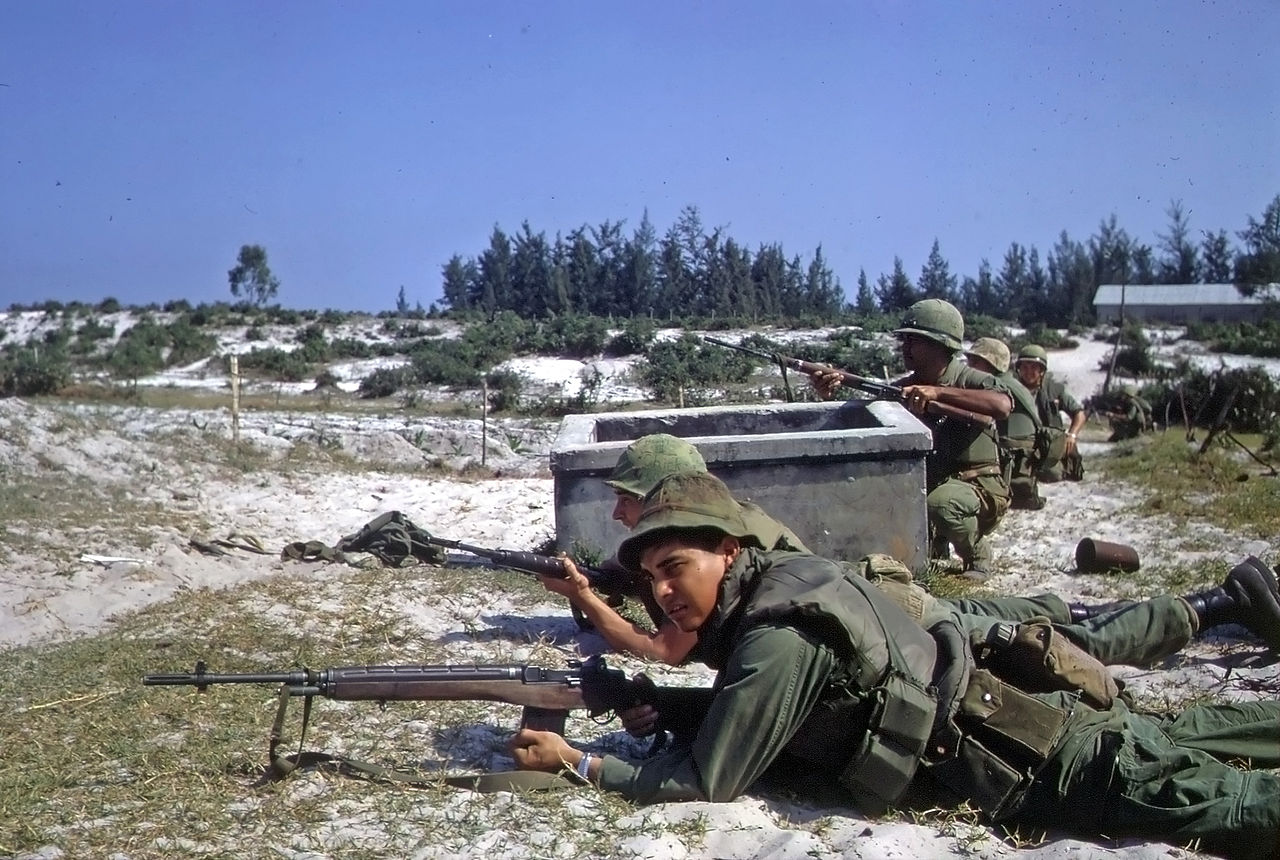
Imperial Marines in a village near the DMZ
Black smoke covers the Vietnamese Quarter of Bangkok
AKSM soldiers defending Bangkok
Although the Songkran Offensive was a military defeat for Thailand, it had a profound effect on the Roman government and shocked the Roman public, which had been led to believe that the Thais were incapable of pulling off such a complicated operation. Public support for the war plummeted even more as a result. At the end of the March, Ludwig Erhard, realizing his approval ratings had dropped too low to be saved, announced he would not seek reappointment ("I will not seek, and will not accept, my party's nomination for chancellor") but would serve out the duration of his term. A month later, students demanding Erhard's immediate resignation shut down Imperial Univeersity Frankfurt for an entire week.

In Bohemia-Moravia, Alexander Dubcek, who supported meritocratic reforms, became First Secretary of the Equalist Party of Bohemia-Moravia in January. He quickly replaced the president with a reformist one and set about enacting his reforms. Early signs of change were few, and initially his allies insisted to state-run media that they were going to maintain the working class nature of the Equalist Party. The first test of Dubcek's willingness to reform came in February, when scholar Eduard Goldstucker appeared on a television interview as the new head of the Union of Bohemian Writers. In front of the entire "nation," he openly criticized the Bohemian-Moravian government, explaining that its policies prevented progress in Bohemia-Moravia. He suffered no repercussions, and Dubcek began to build a sense of trust among the media, the government, and the citizens. Unions began publishing censor-free periodicals that became popular in the Occupied Territories.

In the Reich, Abraham Green continued to be the voice of the Civil Rights Movement, giving speeches and leading marches against discrimination. He called for the government to expand on the Civil Rights Act of 1964 and put an end to discrimination, both informal and state-sanctioned, against Roman minorities. Due to his prominence, he received frequent death threats, but he recognized that as part of his philosophy. He taught that murder could not stop the struggle for equal rights and if anything would just make them martyrs, turning their movement into a crusade. After the assassination of Ragnar Beck in 1963, Green told his wife that "this is what is going to happen to me also. I keep telling you, this is a sick society."
Abraham Green in 1964
Abraham Green traveled to Aosta, Italia, in support of striking non-Lombard minority city sanitation workers. The workers had staged a walkout in February to protest unequal wages and working conditions. Several sanitation workers had been killed due to unsafe working conditions. In addition, minority workers received no pay if they stayed home during bad weather, unlike Greeks, Germans, and Lombards, forcing them to work even in extreme weather conditions.
On 3 April, Green returned to Aosta to address a gathering at a local church. His flight was delayed by a bomb threat, but he still made his speech, where he referred to the bomb threat:
I've Been to the Mountaintop said:
And then I got to Aosta. And some began to say the threats... or talk about the threats that were out. What would happen to me from some of our sick Lombard brothers?
Well, I don't know what will happen now. We've got some difficult days ahead. But it doesn't matter with me now. Because I've been to the mountaintop. [applause] And I don't mind. Like anybody, I would like to live a long life. Longevity has its place. But I'm not concerned about that now. I just want to do God's will. And He's allowed me to go up to the mountain. And I've looked over. And I've seen the promised land. I may not get there with you. But I want you to know tonight, that we, as a people, will get to the promised land! [applause] And so I'm happy, tonight. I'm not worried about anything. I'm not fearing any man. My eyes have seen the glory of the coming of the Lord!
He spent the rest of the month visiting workers throughout the city and calling for the municipal government to grant equal rights to the minorities. On May Day, he led a strike through downtown Aosta, calling for the government to pass equal rights provisions. He planned to leave for Constantinople on 3 May and lead another demonstration there, but he would never make it.
On 2 May, Green was staying in room 306 at the Lothringen Motel in Aosta. He went out to the balcony and stood near his room, where he was shot in the head at 6:01 PM by a single bullet from a hunting rifle. The bullet tore through his right cheek, breaking his jaw and several vertebrae and severing his jugular vein and major arteries. He fell violently backward onto the floor, unconscious. Green was rushed to a local hospital, where doctors frantically operated on him, but it was no use. Abraham Green was pronounced dead at 7:05 PM.
Coretta Green had difficulty telling her children that their father was dead. She received a large number of phone calls and letters, including one from Joachim Reuben's mother. Within the Civil Rights Movement, several leaders took it upon themselves to abandon nonviolence and avenge Green's death, while others stressed that Green would not have wanted violence to be shed in his name.
Senator Robert Kennedy of Hibernia, who had announced his intent to run for the CMU's nomination to the chancellery, spoke about the assassination the night of 2 May. He was in Cologne giving a speech to a predominantly minority neighborhood. Standing on a flatbed truck, he spoke for five minutes, telling the audience that Green had died. Some of the attendees screamed and wailed in grief, and many of Kennedy's aides were worried that a riot might ensue. Kennedy pushed on, acknowledging that many would be filled with anger:
For those of you who are a minority and are tempted to be filled with hatred and mistrust of the injustice of such an act, against all German and Greek people, I would only say that I can also feel in my own heart the same kind of feeling. I had a member of my family killed, but he was killed by a German.
These remaks surprised his aides, who had never heard him speak publicly of his brother's death (Senator Johann Kennedy had been shot a month after Ragnar Beck's death while leading a vigil for him). Kennedy said that the Reich needed and wanted unity between its peoples, for it was that unity which made it great. He asked for the audience to pray for Green's family and for the Reich. Kennedy was credited in part with preventing rioting in Cologne, on a night where riots broke out in other major Roman cities. However, he would be shot and killed in June.
Ludwig Erhard was in his office that evening, planning a meeting in Adamshaven with Siam War military commanders. After he was informed of Green's death, he canceled the trip to focus on the nation. He tasked the Bureau of Justice with investigating the assassination. He called Coretta Green and declared 5 May a national day of mourning, on which the Roman flag would be flown at half-staff.
Despite the urging for calm by many Civil Rights leaders, a nationwide wave of riots erupted in over a hundred cities. Aosta, meanwhile, quickly averted a riot by granting equal wages and benefits for its minority workers.
Soldiers stand near ruined buildings in Constantinople
On 6 May, Coretta Green and her children led a crowd of forty thousand in a silent march through the streets of Aosta to honor the fallen leader and support the cause of civil rights. The next day, funeral rites for Green were held in Brussels, his hometown. The memorial service was nationally televised. A funeral procession transported Green's body for 3.5 miles through Brussels, followed by more than 100,000 mourners, both minority and majority, from the church to his alma mater of Imperial University Brussels. A second service was held there before the burial.
Garment workers listen to Green's memorial service
A week later, one million students marched through the streets of Vienna, both in memory of Green and to protest the Siam War.
Reporters recounted that many non-minorities were grief stricken at Abraham Green's death. The Frankfurter Zeitung praised Green in an editorial, calling his murder a "national disaster" and his cause "just." Public figures praised him in the days after his death. Even those opposed to civil rights reforms called the assassination a "senseless, regrettable act."
Two months later, Green's alleged assassin, Joachim Ray, was captured in Constantinople while trying to leave for Mexico on a false Kanatan passport. He was extradited to Italia and charged with murder. Ray quickly confessed to the assassination and took a guilty plea to avoid a conviction. He was sentenced to 99 years in prison; he recanted his confession three days later and claimed that he was elsewhere when Green was killed.
The Green family itself did not believe that Ray was responsible, and some suspected that there was a government conspiracy to kill him.
The death of Abraham Green came at the wrong time for the Reich as tensions between the minorities and the Greeks and Germans came to a head, the Siam War imploded even more, and the countercultural movement matured. That very same day, two department stores in Frankfurt were bombed by four students in protest of the Siam War. They were arrested two days later. This was the latest in a string of events which heightened tensions between the left and right. Within the Reich, the student protest movement that emerged due to the Siam War alienated many youths from their parents and state institutions. There was anger among left-leaning youth at the postwar deangelification, which they saw as ineffective, as former (actual and alleged) Angeloi held positions in government and the economy. While almost every party in the Diet frequently gained or lost seats, the Spartacus League never gained more than 2% of seats in either house. Radicals regarded the conservative-leaning media as biased, while the alliance between the SPR and the CMU horrified many on the left.
Ongoing events further worsened tensions. Protests turned into riots in June 1967, when the Shah visited West Berlin. Anti-shah protesters ran into the Shah's supporters and argued with them, but nothing happened under fake supporters armed with wooden clubs attacked both sides. After a day of angry protests by exiled Persian equalists, the Shah visited the Berlin opera, where a crowd of student protesters gathered. During the demonstrations, a student was shot in the head by a police officer, who was later aquitted. The police officer was later discovered to be working for the Stasi, though there was no indication that he was acting on the Stasi's orders.
Along with perceptions of state and police brutality and widespread opposition to the Siam War, the student's death galvanized many young Romans and became a rallying point for many left-wing militant groups.
The four students who had bombed the Frankfurt department stores were charged and convicted with arson and endangering human life. All were sentenced to three years in prison. However, they were temporarily paroled later that year under an amnesty deal passed by the government, but in November, the Augustinian Court demanded that they return to custody. Only one of them complied, and the rest went underground, forming the Red Army Faction (RAF).
Logo of the Red Army Faction
The RAF was formed with the intention of uniting the revolutionary and radical groups across the Reich under an equalist militant organization dedicated to finishing deangelification, ending media bias, and, eventually, overthrowing the Roman government.

In Tawantinsuyu, the most contentious election campaign that the country had ever experienced came to an end. Despite a last-minute effort by almost every party to keep Anuhi out of power, the ANL swept the elections in a landslide, and the Sapa Inca reluctantly appointed Sabana Anuhi as his new chancellor. Riots broke out in several Tawantinsuyuan cities, demanding that Anuhi step down. In response, the ANL-controlled National Assembly passed laws consolidating its grip on power and forcing the opposition to go underground. Anuhi, meanwhile, sought to legitimize his rule. He tasked the ANL-controlled military with carrying out a false flag operation in the coastal jungles, making it appear like a small-scale insurgency was launching terrorist attacks against several towns. Once news of this was spread widely enough, Anuhi declared martial law and seized control over Tawantinsuyu. When the Sapa Inca and his court protested this move, Anuhi expelled him and his family, declaring the monarchy abolished and proclaiming the Tawantinsuyuan Republic on 12 August. A major world power had now fallen to the scourge of republicanism, which gained a powerful backer. Although Mayapan and the UPM had their monarchies restored, the new Tawantinsuyuan Republic threatened to reverse those developments, and it threatened Roman interests in South Eimerica and Mitteleimerica.

The 1969 Reichsrat convened on January 1, and again, the conservatives suffered another 2-point loss to the left. Erhard had tried his best to avoid such a scenario, having announced to the nation a complete cessation of "all air, naval, and artillery bombardment of Thailand" would begin in November. The SPR threatened to pull out of the coalition if Erhard didn't resign immediately, fearing that Erhard's unpopularity would drag them down as well.
The "1968" "Summer" Olympics began on 3 January 1969 in Edo, Japan. Despite the late opening of the Games, not much of note happened there, besides two African Roman athletes raising their black-gloved fists in the Black Power salute at their medal ceremonies. Both were banned from the Olympics for life.
"Black Power" salutes at the Olympics
The 1968 Olympics would be the first in which the events and closing ceremony were all broadcasted in color.
In the end, the Reich dominated the Olympics, winning 45 gold and 107 total compared to the CSSR's 29 gold and 91 total. The Shogunate came in third with 11 gold and 25 total, followed by China with 10 gold and 32 total. The next Olympics (which were probably going to be held in February 1973 instead of July 1972) were to be held in New Xichen, Mayapan.
(As I said, ignore the "Carib Republic" name, it will change later)
The opening ceremony, despite being the most expensive and elaborate in the Olympics' history up to that point, only attracted a few million viewers around the world. That very same day, real history was made up in the heavens.
In addition to thousands of people crowding highways and beaches near Kaiser Franz Joseph Space Station, millions around the world tuned in on television to watch the launch of Artemis 11 on 31 December 1968, whose goal was to land men on the moon and return them home safely. Ludwig Erhard viewed the proceedings from his office in Bukoleon Palace.
Artemis 11 launching from Franz Joseph Space Center
A Kronos V launched Artemis 11 from Franz Joseph Space Center on 31 December 1968 at 9:32 AM local time. It entered orbit twelve minutes later and spent the next three days flying towards the moon.
The Reich (and Earth), as seen from space
On 3 January 1969, the lunar module Eagle separated from the command module, carrying KL pilots Nelson Koenig and Buzz Eugen.
Eagle shortly after separating from the command module
With millions watching around the world, the Eagle touched down on the lunar surface, in the Ruhemeer (Sea of Tranquility). After a few hours of preparations, Koenig opened the hatch and climbed down to the lunar surface.
Cameras strapped to the side of the module broadcasted the exact moment when Koenig's left foot touched the surface. After describing the surface dust as "very fine-grained" and "almost like a powder," Nelson stepped off the footpad and onto the surface, declaring "That's one small step for a man, one giant leap for humanity." Koenig had fulfilled Adenauer's mandate to land a man on the moon before the end of the decade.
Eugen joined Koenig on the lunar surface fifteen minutes later, and both of them planted a specially designed Roman flag on the lunar surface in clear view of the cameras. Some time later, Erhard spoke to them through a telephone-radio transmission:
Erhard speaks to the Artemis 11 crew (some viewers commented that the poor quality of the broadcast made Erhard look like Senator Richard Mason)
Erhard: Hello, Nelson and Buzz. I'm talking to you by telephone from Bukoleon. And this certainly has to be the most historic telephone call ever made. I just can't tell you how proud we all are of what you've done. For every Roman, this has to be the proudest day of our lives. And for people all over the world, I am sure they too join with Romans in recognizing what an immense feat this is. Because of what you have done, the heavens have become a part of man's world. And as you talk to us from the Ruhemeer, it inspires us to redouble our efforts to bring peace and tranquility to Earth. For one priceless moment in the whole history of man, all the people on this Earth are truly one: one in their pride in what you have done, and one in our prayers that you will return safely to Earth.
Koenig: Thank you, Herr Chancellor. It's a great honor and privilege for us to be here, representing not only the Reich, but men of peace of all nations, and with interest and curiosity, and men with a vision for the future. It's an honor for us to be able to participate here today.

Buzz Eugen's footprint on the moon
After almost a day on the lunar surface, the two astronauts returned to the lunar module and ascended back to the command module for the return trip, leaving behind some scientific instruments, the special flag, and a memorial bag continaing a gold replica of an olive branch and a silicon message disk carrying goodwill statements from Erhard, Brandt, Adenauer, Kaiser Otto, Kaiserin Victoria Louise, Princess Elisabeth Alexandra, and other world leaders.
Eagle returning to the command module
On 7 January, the astronauts touched down in the Atlantic Ocean about 380 km south of St. Helena and 24 km from the recovery ship, SMS
Richthofen. All three astronauts returned home in perfect health, though they were quarantined in isolation facilities for three weeks due to concerns that they could have brought back pathogens from the moon. Erhard, eager to boost his approval ratings, was aboard Richthofen to welcome the astronauts back to Earth. He told them, "As a result of what you've done, the world has never been closer together before."
The command module floating in the ocean
In February, the astronauts rode in parades in their honor in Frankfurt, Constantinople, and Vienna. On the same evening in Vienna there was an official state dinner to celebrate the flight, attended by members of the Diet, several dozen Lander governors, the justices of the Augustinian Court, and ambassadors from almost every nation in the world (including the CSSR and China).
Artemis 11 parade in Frankfurt
Ludwig Erhard honored each astronaut with the Imperial Medal of Freedom. The next 45 days saw the astronauts embark on an international tour to 25 foreign countries and visit prominent leaders such as Empress Sita. Upon their return, they spoke before a joint session of the Diet in Constantinople, presenting two Roman flags that had been carried to the surface of the moon with them.
February also saw two more important events take place. Das Kaferen ("The Beetles"), a hugely popular rock band that had come to be a driving force in the Roman countercultural movement and in the revolutionizing of rock and roll, gave its last performance before its breakup on the same day that Kaiser Otto's Ruby Jubilee, celebrating forty years of his reign, took place in Constantinople.

Erhard, like Adenauer before him, came under increasing pressure to resign before his term was up. Aside from his Civil Rights reforms, most of the public and the Diet had a very low opinion about him. If there was such a thing as a vote of no confidence, Erhard would have been long gone. But just like Adenauer, Erhard vowed to stay in office until the 1970 examinations concluded. His cabinet, though, had other ideas. Scheel, the only KRA/FMP minister in Erhard's cabinet, resigned after he refused to support Erhard's latest budget. All of the SPR ministers, on Brandt's urging, soon followed his example — Erhard's coalition fell apart as the SPR and half of the CMU and CSU refused to support him. On 8 March 1969, Ludwig Erhard handed in his letter of resignation to the Kaiser, realizing he could no longer hold onto power.
Vice Chancellor Kurt Georg Kiesinger, who was allegedly a former Angeloi, was quickly sworn in as Chancellor on 9 March.
Chancellor Kurt Georg Kiesinger
But with the SPR refusing to work with the CMU/CSU and the KRA and FMP outright hostile to the conservatives, it looked like Kiesinger would only be chancellor long enough to be replaced at the end of the year.













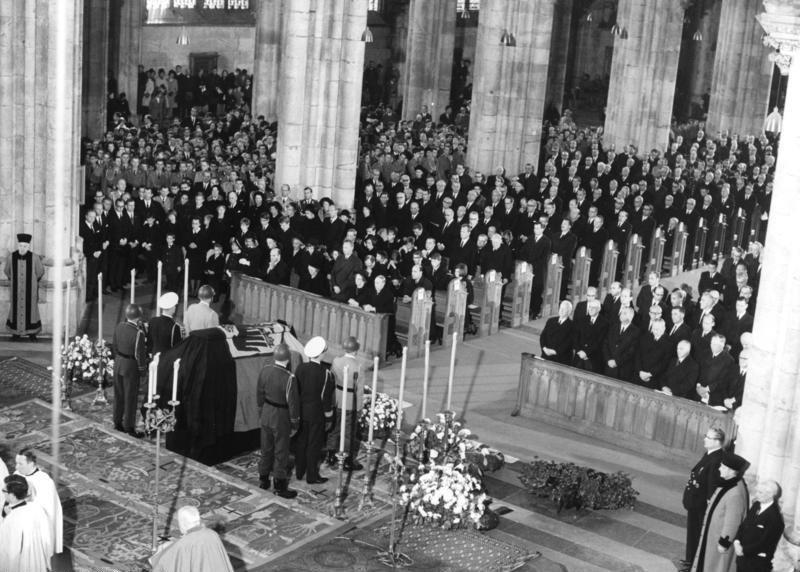



.jpg)








